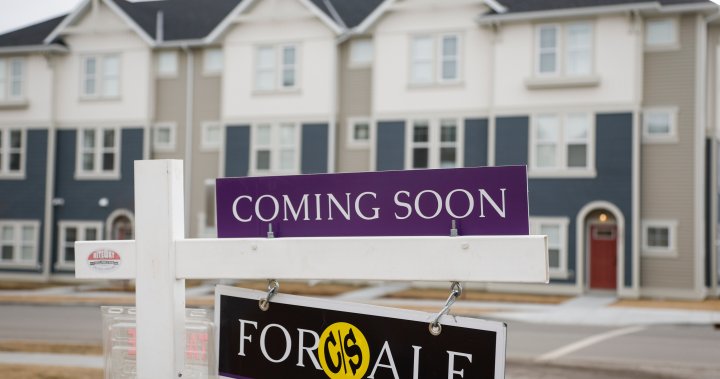
Fixed or variable? How to pick a mortgage as interest rates rise
Global News
Should you go with a variable or fixed-rate mortgage? Rising interest rates are changing the calculus for prospective home buyers, experts say.
The Bank of Canada’s effort to cool the housing market by hiking interest rates has house hunters and home owners alike re-examining what kind of mortgage they can take on.
Global News spoke to mortgage experts and economists to help break down the factors consumers should be considering as they crunch the numbers on monthly housing payments in the midst of a rising interest rate environment.
First things first, know the different kinds of mortgages available to you.
A fixed-rate mortgage offers homebuyers a steady interest rate for a set term, usually set in three-to-five year increments over the length of the mortgage.
These rates aren’t immediately affected by the Bank of Canada’s interest rate moves — even if expected hikes can be baked into the rate you’re offered — and therefore provide a bit more predictability in your monthly payments through the length of the term.
A variable-rate mortgage changes in response to Bank of Canada interest rate decisions, as financial institutions tie their prime rates to central bank’s benchmark rate. You’d then get a discount on top of that.
For example, today’s variable-rate mortgage contract might offer you the prime rate of 3.2 per cent minus 0.6 per cent, according to Leah Zlatkin, mortgage broker and expert with lowestrates.ca.
Variable rates are “typically” lower than their fixed-rate counterparts, Zlatkin says.





















 Run 3 Space | Play Space Running Game
Run 3 Space | Play Space Running Game Traffic Jam 3D | Online Racing Game
Traffic Jam 3D | Online Racing Game Duck Hunt | Play Old Classic Game
Duck Hunt | Play Old Classic Game